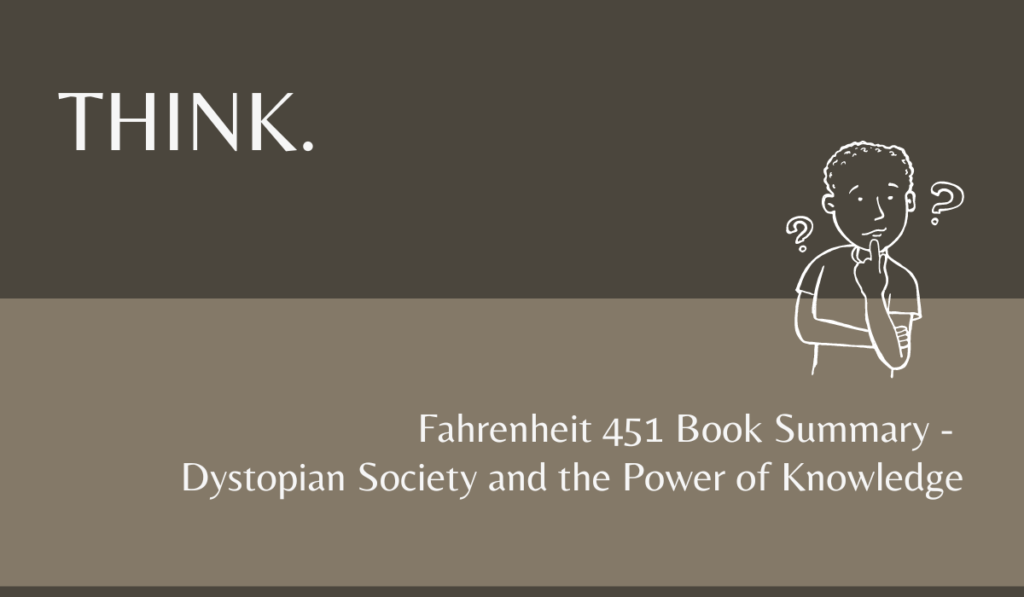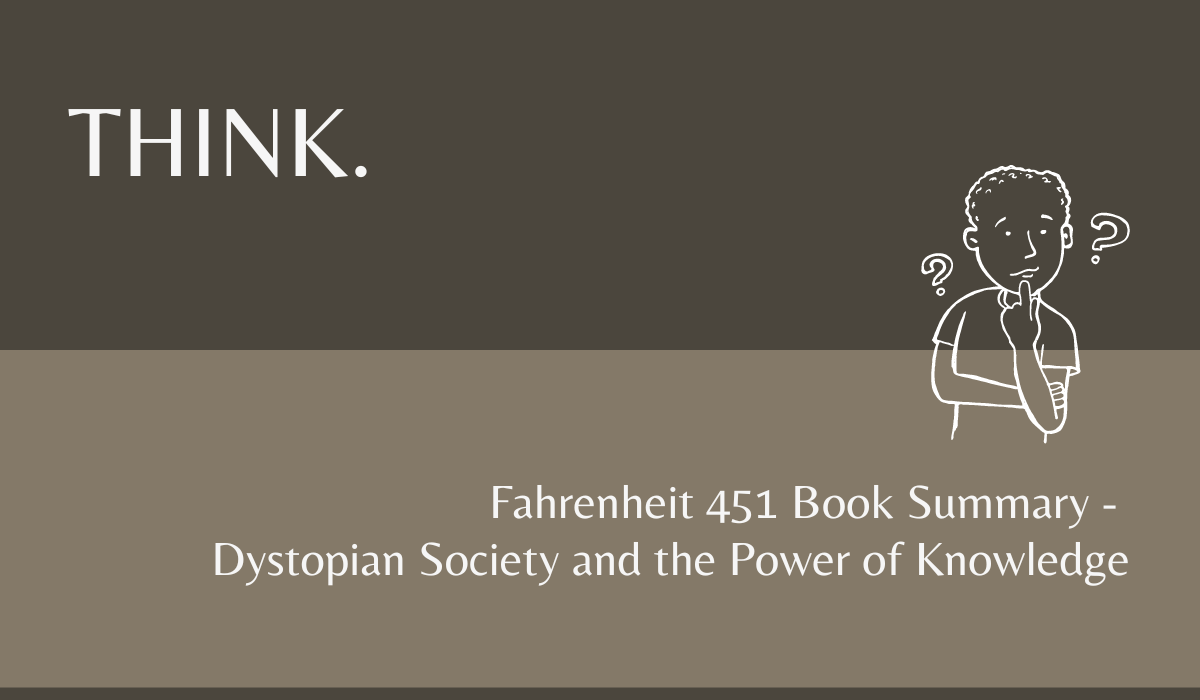Fahrenheit 451 Book Summary – Dystopian Society and the Power of Knowledge
Introduction: Fahrenheit 451 is a classic dystopian novel that paints a vivid picture of a society where books are banned, critical thinking is discouraged, and knowledge is suppressed. This summary provides a chapter-wise overview of the book, highlighting the key events, memorable characters, and the moral lessons conveyed in this thought-provoking tale, all presented in an easy-to-understand language.

Chapter-wise Summary:
Chapter 1: The Fireman’s World In a future society, Guy Montag works as a fireman whose job is to burn books. He lives in a world where books are seen as dangerous and subversive. Montag’s discontent with his life begins to grow as he encounters a young girl named Clarisse, who challenges his perspective.
Chapter 2: Montag’s Awakening Montag becomes increasingly disillusioned with his role as a fireman and starts to question the suppression of knowledge. He steals a book during a raid and seeks the help of an old professor, Faber, who becomes his guide in understanding the power of literature.
Chapter 3: The Pursuit Begins Montag’s transformation becomes evident to his colleagues, and he is pursued by his former fireman captain, Beatty. Montag’s wife, Mildred, turns him in, further complicating his escape.
Chapter 4: The Book People Montag meets a group of individuals known as the Book People, who have memorized the contents of books to preserve knowledge in a society that outlaws them. He joins their cause and becomes committed to preserving literature.
Chapter 5: The Destruction of the City Montag witnesses the destruction of his city in a nuclear war. He and the Book People set out to rebuild society and pass on their knowledge to future generations.
Moral:
Fahrenheit 451 conveys powerful moral lessons about the dangers of censorship, the importance of critical thinking, and the transformative power of knowledge. Through Montag’s journey, readers are confronted with the consequences of a society that suppresses intellectual freedom.
The book highlights the importance of preserving literature and the role it plays in shaping individuals and society. It serves as a warning against the dangers of a society that discourages independent thought and critical analysis.
Additionally, Fahrenheit 451 emphasizes the need for human connection and empathy in a technology-driven world. The characters’ pursuit of knowledge and their commitment to preserving books symbolize the enduring human spirit and the quest for truth and enlightenment.
Overall, Fahrenheit 451 serves as a cautionary tale, urging readers to value intellectual freedom, embrace the power of knowledge, and actively resist the forces that seek to suppress it. It encourages individuals to question authority, think independently, and fight for a society that values critical thinking and the free exchange of ideas.
Read Next Book Summaries:
Book of Amos Summary – Social Justice and Divine Judgment
